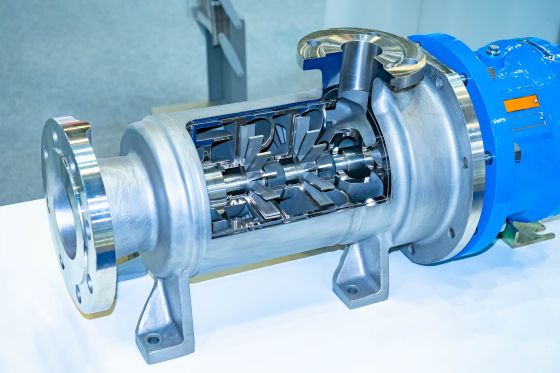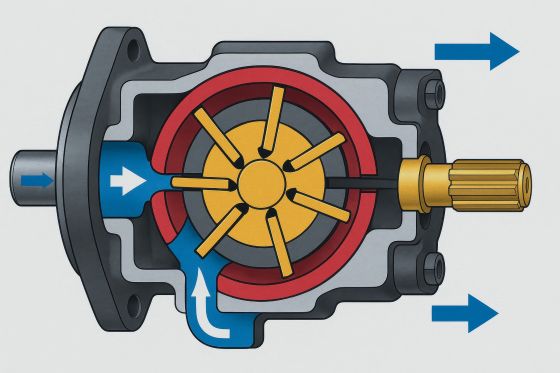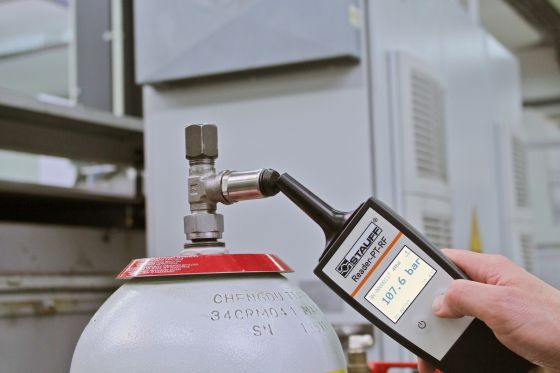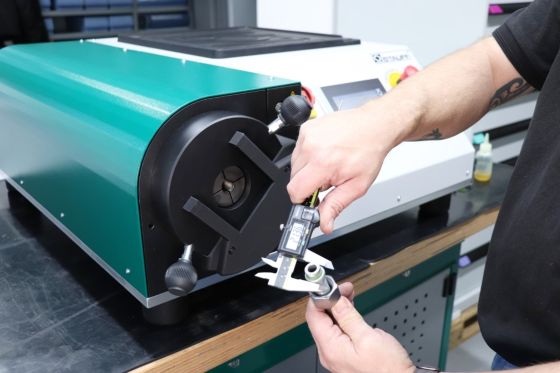Pioneers of hydraulics
The development of modern hydraulics is not only based on theoretical principles, but also on practical innovations by visionary engineers. In our "Pioneers of hydraulics" series, we present the personalities whose ideas form the foundation for today's applications. One of them is Harry Franklin Vickers, an American autodidact whose inventions changed industrial processes worldwide.
As the developer of the first industrially successful vane pump and founder of Vickers, Inc., he is regarded as a pioneer of industrial hydraulics. At STAUFF, too, his achievements still form a technical basis for products that are used in hydraulic systems worldwide.
The life of Harry Franklin Vickers
Harry Franklin Vickers was born in Montana, USA, in 1898. Without any formal training in engineering, he taught himself the basics of mechanics and technology. His practical inventiveness was evident early on: as a young mechanic, he experimented with pump systems for power transmission.
In 1921, he founded the Vickers Manufacturing Company in Detroit, which later became known worldwide as Vickers, Inc. His developments made him one of the most influential engineers of the 20th century. In 1956, he was appointed to the National Research and Development Council by US President Dwight D. Eisenhower.
The invention of the Vickers pump
Probably Vickers' most significant innovation was the development of the hydraulic vane pump. It enabled the controlled and low-loss transmission of large forces via liquids - a milestone for the automation of industrial processes.
The advantages of this pump were its compactness, efficiency and durability. It was used in mechanical engineering, aviation, agriculture and military technology - wherever precise power transmission was required.
In addition to the vane pump, Vickers developed numerous other pioneering hydraulic components. These included pressure-regulated valves, hydraulic servo controls for aircraft, compact axial piston pumps, control blocks for complex machines and integrated hydraulic systems for armoured vehicles. Many of these developments laid the foundation for today's precision hydraulics and are still used today in modernised form.
Vickers and modern industrial hydraulics
Industrial applications of hydraulic systems experienced an enormous upswing with Vickers' developments. His components were standardised, reliably produced and used worldwide. This made it possible to design hydraulic systems efficiently and reproducibly.
Vickers thus laid the foundation for the systematic hydraulic architecture that is now standard in almost all areas of industry - from machine tools and excavators to aeroplanes.
Even today, a large part of modern hydraulics is still based on the functional principle established by Vickers: a closed system in which an incompressible fluid transmits forces through controlled pressure.
Vickers and STAUFF: The link to modern hydraulics
STAUFF develops and produces components for hydraulic systems all over the world - and relies on many of the principles that Harry F. Vickers once established.
Whether pressure control technology, pump connections, valve technology or filter solutions: STAUFF components are based on the standards and principles that Vickers once defined. To this day, his inventions enable the reliable operation of hydraulic systems under high pressure and extreme loads.
Just as Vickers created systems that were flexibly adaptable and modular in design, STAUFF follows the same approach today - with modern materials, intelligent measurement technology and high energy efficiency.
FAQs
Who was Harry Franklin Vickers?
What did Harry Vickers invent?
The hydraulic vane pump - a milestone in fluid power transmission.
Why is Vickers so important for industry?
He created standardised, robust hydraulic components that were used worldwide and are still used today.
What is the connection between Vickers and STAUFF?
STAUFF utilises many of the principles established by Vickers - for example in pressure transmission, filter technology or in hydraulic control and regulation components.
Which technologies are still based on Vickers' ideas today?
Pump and valve systems, machine hydraulics, hydraulic drives in vehicles, presses and more.

Newsletter registration
Register now and don't miss any new articles!







